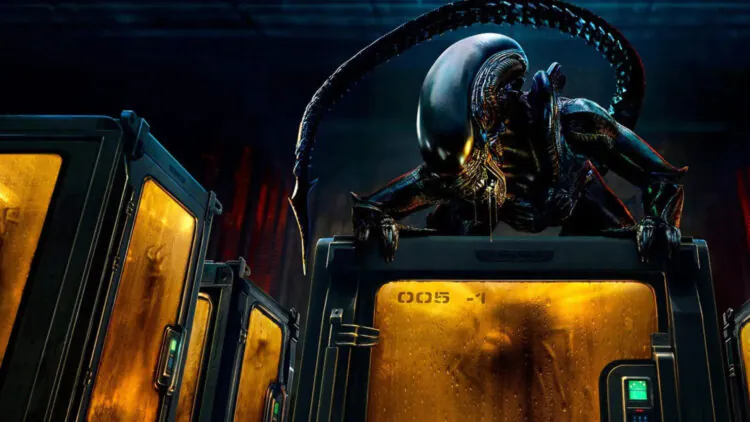The Alien franchise—spanning horror, science‑fiction, and action—has set an almost unattainable benchmark for stories about murderous extraterrestrials, a standard that remains hard to surpass nearly five decades on. Though the series has experienced peaks and valleys, it consistently proves to be a versatile property that audiences are willing to give the benefit of the doubt.
The franchise never became “damaged goods,” yet it lay dormant for seven years until Fede Álvarez revived it with Alien: Romulus. This long silence—combined with the recent creative resurgence of the Predator series—raises a larger question: what do viewers expect from Alien, and what does the franchise mean to them?
Modern Alien entries often fail to satisfy every fan, suggesting that the series is strongest when it serves as a nostalgic touchstone, reminding viewers of the terror and awe they once felt in the presence of a killer alien.
Set in 2120, two years before the events of Alien, the first two episodes of Alien: Earth—“Neverland” and “Mr. October”—center on the emergence of the first hybrid, a synthetic being who has uploaded a human consciousness. “Neverland” opens with an inventive auditory collage: overlapping conversations blend into a white‑noise‑like hum, echoing the disorienting transition from cryogenic sleep. The same technique resurfaces when Wendy (Sydney Chandler) begins to experience hybrid perception, forcing the audience to stay alert. This sense of expendability is precisely the energy an Alien story needs.
Both episodes (and presumably the entire first season) explore what it means to be alive, to create life, and to consider the image in which we fashion our creations. Heavy Peter Pan references—down to the protagonist’s name, Wendy—serve as Hawley’s cultural Rosetta stone. While the all‑Peter Pan motif can feel self‑indulgent, it works because Wendy embodies an enlightened yet curious entity torn between humanity and artificiality. “Neverland” likens the birth of the first synthetic to Neil Armstrong’s moonwalk, arguing that the ceremony isn’t about producing the “best” thing but about teaching an imperfect being to become its best self. Humanity craves challenge; we are all, in effect, curious David‑8s seeking articulate, intelligent companions.
As the inaugural hybrid, Wendy enjoys the freedom to define herself beyond mere humanity, wielding the power that independence grants. Alien: Earth portrays its world as vast and frightening, yet undeniably beautiful. Children facing imminent death are granted “forever” lives, a “giving of life” sequence captured in a seamless, magical long take. Chandler’s nuanced performance makes Wendy feel akin to Hawley’s previous female leads—think Amber Midthunder or Mary Elizabeth Winstead—yet she remains distinct from Ripley or Rain Carradine.
The sibling‑like bond between Wendy and Joe/Hermit (Alex Lawther) forms the series’ emotional core, a vital counterpoint to the cold, corporate forces that dominate the universe. Wendy watches Hermit from a distance, unable to communicate, mirroring the longing of Wendy Darling for Peter Pan. This absence‑driven storytelling creates a moving connection that blossoms within a single episode. Chemistry flourishes across the cast: Timothy Olyphant’s Kirsh, a synthetic caretaker for Wendy and his fellow synthetics, may have limited screen time early on, but he maximizes every moment.
Beyond narrative, Alien: Earth is visually immaculate. Its rugged, gritty production design—sets, costumes, lighting, and makeup—evokes the look of classic 1970s sci‑fi like Alien and Blade Runner. The series also repurposes children’s media (Peter Pan, Ice Age) as modern myth, echoing the timeless function of The Iliad or The Odyssey. Jeff Russo’s haunting, retro‑infused score amplifies the unsettling atmosphere.
The show cleverly manipulates audience expectations. It assumes viewers are familiar with the Alien mythos and the ominous conical egg, then subverts where danger truly lies. Wendy’s yearning to reunite with her sibling coincides with a spaceship crash, using the disaster as a catalyst for familial reconnection. This human motivation grounds the high‑stakes scenario of being trapped inside the alien creature.
A stark tonal shift follows: from claustrophobic space opera and god‑like experiments in an orphanage to the sleek, futuristic utopia of New Siam’s Prodigy City. The abrupt transition establishes the breadth of the universe. Prodigy City’s aesthetic contrasts sharply with “Neverland’s” early visuals, suggesting a narrative scope capable of sustaining multiple seasons. A massive ship crash—reminiscent of a “9/11” for Prodigy City—provides an ambitious set piece that showcases Hawley’s grandest direction to date.
Fans seeking classic Xenomorph carnage will not be disappointed. “Mr. October” delivers a tense chase, fight, and kill, ensuring the series does not shy away from its signature creature until the finale. The Xenomorph is treated as the perfect killing machine—a true behemoth—augmented by a Sam Raimi‑style spectacle involving a melting cat and a spider‑eyed monster that feels both reminiscent of Prometheus/Alien: Covenant and distinctively Hawley.
Beyond terror, the most resonant moments arise when characters—human or otherwise—access memories. Nostalgic comforts—a DreamWorks animation, an autographed baseball—bridge the gap between past and present, reminding us that memories sustain identity even within alien bodies. While the special effects dazzle, the true “magic trick” is two individuals forging a genuine connection in a sterile, cynical expanse. This emotional thread is especially potent for Wendy and Joe, and it gains extra weight because the series leans on a franchise with a 45‑year legacy that naturally summons personal recollections.
Directed by Noah Hawley (“Neverland”) and Dana Gonzales (“Mr. October”), the opening episodes lay a robust foundation for Alien: Earth, daring to explore underdeveloped corners of the franchise. The terrestrial setting breathes fresh life into the series, proving that while space remains alluring, grounding the story on Earth can invigorate the Alien mythos like never before.
Alien: Earth is now streaming on JioHotstar in India from August 13, 2025.























